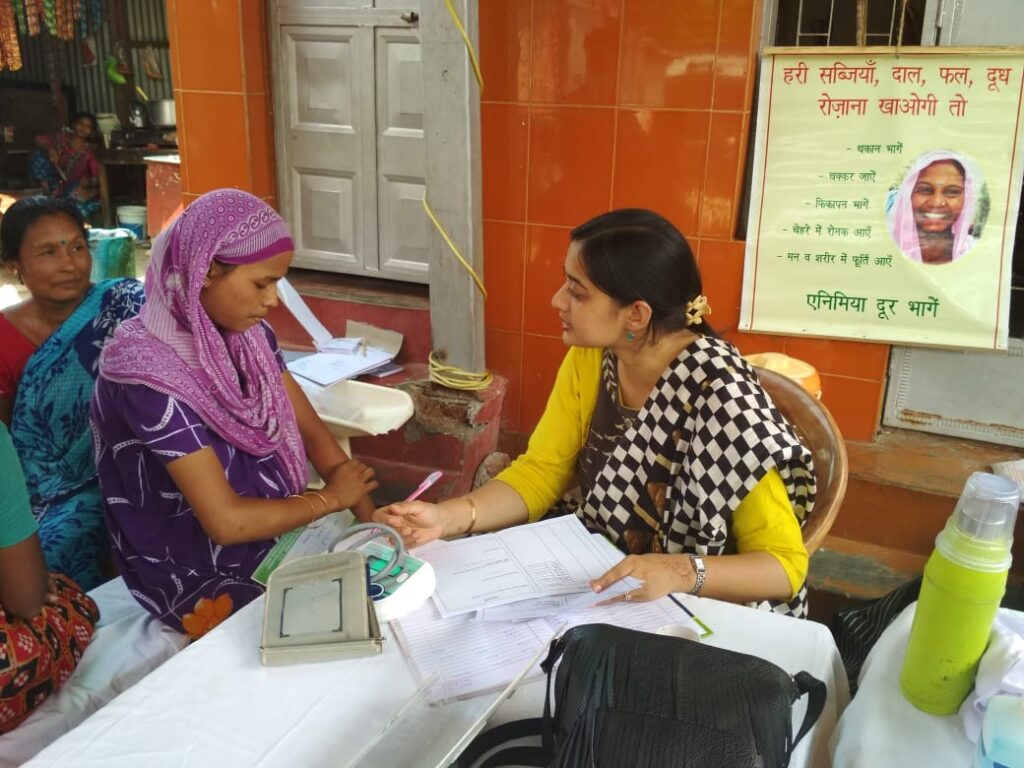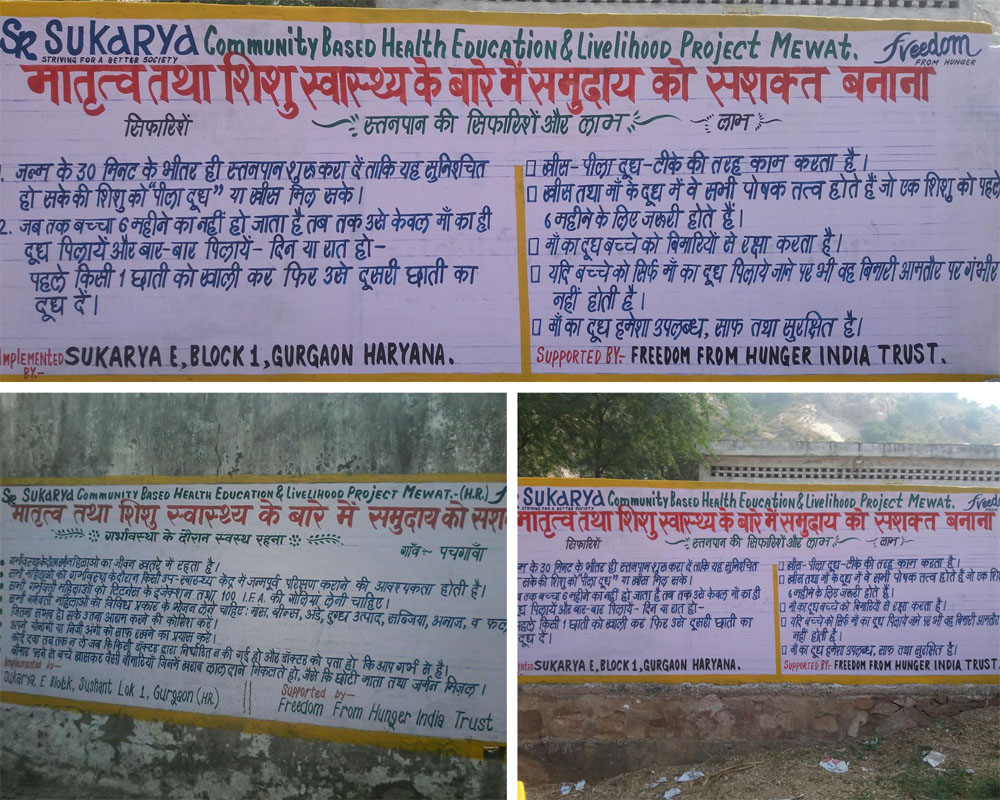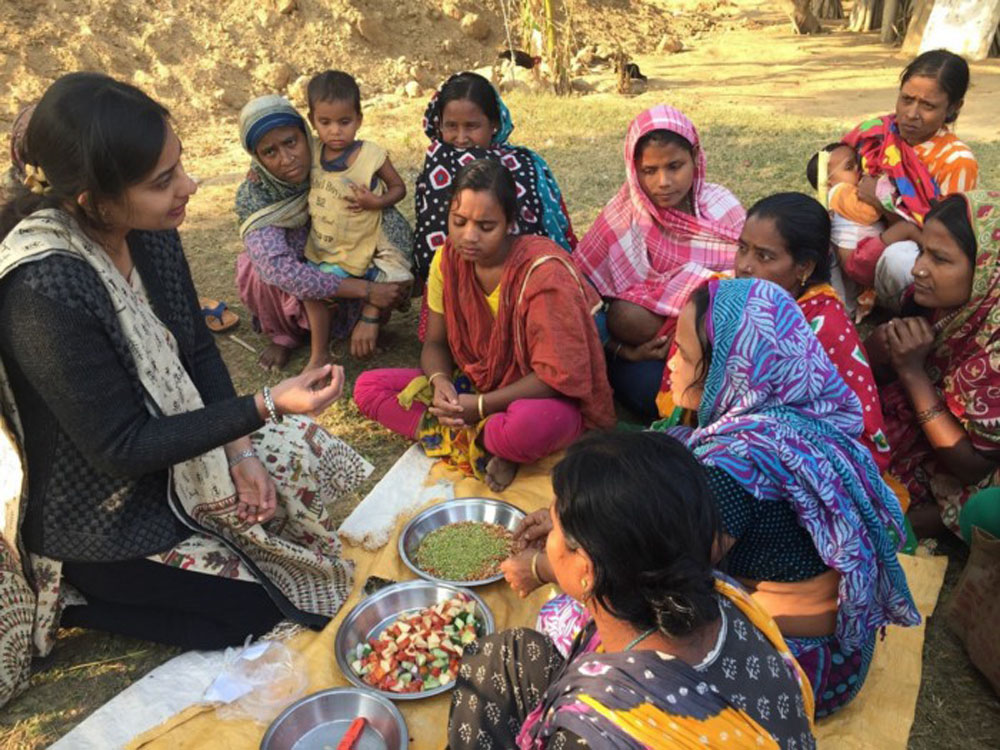by Meera Satpathy
In a virtual press conference held in June this year about maternal, child and adolescent health during the Covid-19 pandemic, the WHO Director-General Tedros Adhanom Ghebreyesus warned that the indirect effect the Covid-19 pandemic is having on the health of women and children may outweigh the number of deaths from the disease itself. “As the pandemic escalates in low-and middle-income countries, WHO is especially concerned about its impact on people who already struggle to access health services — often women, children and adolescents”, Tedros said. “Services typically provided for women, children and adolescents are not readily available during the pandemic, which may lead to problems later”.
The recent UNICEF report also expressed similar concern by stating that the Covid-19 outbreak may deepen the problem of malnutrition in India, with massive disruptions in continuity of food availability and livelihoods anticipated. The report said there is an urgent need to bring management of severe acute malnutrition into the fold of essential health and nutrition services and to ensure continuity of services for the management of child wasting. Also the latest Lancet Study (2020) which says that maternal and child nutrition leads to 68% of under-five deaths in India and the low birthweight and short gestation lead to 83% of the neonatal deaths.
This took me two years back in time line when Sukarya invited academicians, policymakers, nutritionists, health care professionals, scientists, researchers, activists and subject matter experts from all over India to gather on Sept. 29, 2018 in New Delhi to confer on how to free future generations from malnutrition. The call for action was due to the Global Nutrition Report 2017, which emphasized the urgent need to integrate actions on global nutrition if India hoped to meet its Sustainable Development Goals of Agenda 2030. According to the data revealed by the report, India was facing a serious threat of under-nutrition where more than half of the women of reproductive age suffered from anemia. About 38% of children under the age of five were affected by stunting and about 21% of children under the age of five were defined as wasted or severely wasted.

Improving Maternal Child Health Nutrition (MCHN+A) & Adolescent Health has been an integral part of Sukarya’s mission since 1998 with a comprehensive approach adopted for each of our projects, as nutritional issues are not just about lack of food and resources but also about lack of access, knowledge, information, dietary habits, socio-cultural dynamics, and gender aspects.

Following a continuum of care approach, from pre-pregnancy to post-partum, Sukarya has helped set up mobile health clinics, Nutritional cooking demo & counseling, circulation of recipe books, wall paintings on nutritional guidelines, promotion of cooking with iron skillet, organizing health camps and identifying/training community health workers. Basic healthcare services have been brought to the doorstep of women, children and adolescents living in underserved areas of Delhi, Rajasthan, and Haryana. Pregnant women have been provided easy access to quality antenatal care. They have been sensitized on the importance of institutional deliveries. Linkages have been built and strengthened with the government system to ensure that both mother and newborn are followed-up in the post-partum phase. Awareness has been created on the need for adequate nutrition during pregnancy and breastfeeding, adoption of hygienic practices during delivery and adequate spacing of birth to improve the health of women.

These efforts of more than two decades at the grass roots level have enabled Sukarya to provide services in hundreds of villages and slums serving more than 5.0 million women and children. We had a plan to expand our outreach as the need for our MCHN program has been consistently growing. But we had no idea that everything would come to a standstill due to the unprecedented and extended lock-down due to Covid-19. The 100-plus days of complete lock-down and the spread of Covid-19 had a severe impact on the progress we had made in last 21 years.
2020 Global Nutrition Report published in The Hindu says India has the highest rates of inequalities in malnutrition and is among 88 countries that are likely to miss global nutrition targets by 2025. There is a real risk that, as nations strive to control the (COVID-19) virus, the gains they have made in reducing hunger and malnutrition will be lost,’ the report warns.
We cannot afford to look back on the next 10 years as a decade of picking up the pieces and rebuilding our ability to deliver essential services for women and children, we need to rather look at it as the decade of accelerating action because we all need to be together to do this.
There is an urgent and immediate need to improve the health and nutrition for women and children in India as the burden of malnutrition will increase further due to the Covid-19 pandemic. Nonprofits like us are waiting for the guidelines from the Government as stated. While POSHAN abhiyaan has been the lead kindly light and has been very encouraging yet the programs fail because of the lack of proper implementation. Till date malnutrition remains our biggest challenge and risk. According to UNICEF “Although community mobilization strategies are developed, activities are rarely implemented as planned due to a lack of convergence between government departments, with proposed actors engaged by other activities.
Sukarya has been rolling out various projects with an aim to prevent and control acute malnutrition using our own funds all with the help of some corporates. We have been urging and pressing this issue for two decades. We have plenty of resources in our country. Why can’t we make India malnutrition free?
